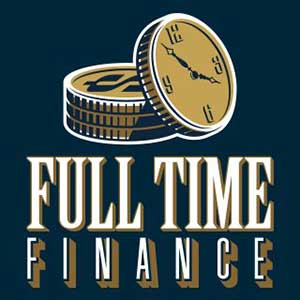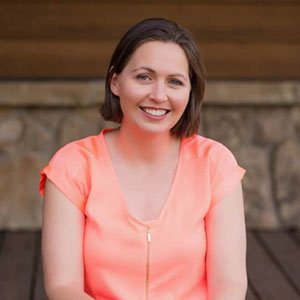
Know Your Blogger Series

If there’s one thing that maybe sets me apart, it’s that I’m all over the map with my interests and whims on the blog. One minute I’ll be posting hell-bent on early retirement, the next, I’m advising kids to stay in their cubes. For some, I suppose that could be entertaining to read about.
Check out our Q&A with Abandoned Cubicle here.
During these weekly features, we are hoping to provide a way for you to interact and learn more about different blogs in the personal finance space.
Below, you can read more about the story behind Abandoned Cubicle, learn about the author, and learn personal finance tips from Abandoned Cubicle to help you improve your financial situation.
A big thanks for Abandoned Cubicle for this interview! Now, we will turn it over to the author for this interview.
Tell Us About Abandoned Cubicle
What makes you and your blog unique?
What does “being good with your personal finances” mean to you?
What are some habits you practice to keep your personal finances in order?
What are your three articles people should read to get to know you and your message better on your site?
For someone looking to improve their financial situation, what’s your best advice?
In your opinion, what’s better? Renting a place or buying a house to live?
In your opinion, what should you do first? Pay down debt, or invest?
In your opinion, what’s better? Focusing on increasing your income, or focusing on decreasing your expenses?
What is your favorite investment class and why? (stocks, private business, bonds, real estate, crypto, precious metals, etc.)
If you received a $5,000,000 windfall tomorrow, what would you do with the money?
How You Can Contact Abandoned Cubicle for More Information
Thank you for reading this interview, and thank you, Abandoned Cubicle, for providing us with some great personal finance tips!
Know Your Blogger Series

I always saved money by avoiding taking my shirts to the cleaners, but the goal was to stop that (and I ironed my last shirt in March of 2019).
Check out our Q&A with Stop Ironing Shirts here.
During these weekly features, we are hoping to provide a way for you to interact and learn more about different blogs in the personal finance space.
Below, you can read more about the story behind Stop Ironing Shirts, learn about the author, and learn personal finance tips from Stop Ironing Shirts to help you improve your financial situation.
A big thanks for Stop Ironing Shirts for this interview! Now, we will turn it over to the author for this interview.
Tell us about Stop Ironing Shirts
What makes you and your blog unique?
What does “being good with your personal finances” mean to you?
What are some habits you practice to keep your personal finances in order?
What are your three articles people should read to get to know you and your message better on your site?
For someone looking to improve their financial situation, what’s your best advice?
-
If you can’t afford to live alone, get roommates to help share the fixed costs.
-
Do you have debt and want advice on food expenses? If Aldi doesn’t sell it, you can’t afford to eat it.
-
Finally, understand that cars are expensive. The number of nice cars I see in “young professional” apartment complexes is both shocking and depressing to me.
In your opinion, what’s better? Renting a place or buying a house to live?
In your opinion, what’s better? Focusing on increasing your income, or focusing on decreasing your expenses?
What is your favorite investment class and why? (stocks, private business, bonds, real estate, crypto, precious metals, etc.)
If you received a $5,000,000 windfall tomorrow, what would you do with the money?
What’s a non-money related interest you have and what do you love about it?
Why do you believe learning about money and caring about personal finance is important?
How You Can Contact Stop Ironing Shirts for More Information
Thank you for reading this interview, and thank you, Stop Ironing Shirts, for providing us with some great personal finance tips!

Know Your Blogger Series

I hope that by sharing my story, there is one more example for people to use as inspiration on their own financial journey.
Check out our Q&A with Financial Mechanic here.
During these weekly features, we are hoping to provide a way for you to interact and learn more about different blogs in the personal finance space.
Below, you can read more about the story behind Financial Mechanic, learn about the author, and learn personal finance tips from Financial Mechanic to help you improve your financial situation.
A big thanks for Financial Mechanic for this interview! Now, we will turn it over to the author for this interview.
Tell us about Financial Mechanic
What makes you and your blog unique?
What are some habits you practice to keep your personal finances in order?
What are your three articles people should read to get to know you and your message better on your site?
What’s an area of your life which has benefited from improving your personal finances? Have there been any areas of your life which have suffered?
What are your favorite personal blogs and bloggers you have been inspired by?
In your opinion, what’s better? Focusing on increasing your income, or focusing on decreasing your expenses?
What’s a non-money related interest you have and what do you love about it?
Why do you believe learning about money and caring about personal finance is important?
How You Can Contact Financial Mechanic for More Information
Thank you for reading this interview, and thank you, Financial Mechanic, for providing us with some great personal finance tips!

Know Your Blogger Series

I created this site shortly after realizing that I was in a position where I could stop working for other people to get money and start working for myself to get happiness. I wanted to share what I know that had gotten me to a level of financial independence. I also wanted to keep myself accountable while researching and exploring what a life might look like beyond traditional employment.
Check out our Q&A with Life Outside the Maze here.
During these weekly features, we are hoping to provide a way for you to interact and learn more about different blogs in the personal finance space.
Below, you can read more about the story behind Life Outside the Maze, learn about the author, and learn personal finance tips from Life Outside the Maze to help you improve your financial situation.
A big thanks for Life Outside the Maze for this interview! Now, we will turn it over to the author for this interview.
Tell us about Life Outside The Maze
What makes you and your blog unique?
What are some habits you practice to keep your personal finances in order?
What are your three articles people should read to get to know you and your message better on your site?
For someone looking to improve their financial situation, what’s your best advice?
What’s an area of your life which has benefited from improving your personal finances? Have there been any areas of your life which have suffered?
What is your favorite investment class and why?
What’s a non-money related interest you have and what do you love about it?
Why do you believe learning about money and caring about personal finance is important?
How You Can Contact Life Outside the Maze for More Information
Thank you for reading this interview, and thank you, Life Outside the Maze, for providing us with some great personal finance tips!

Know Your Blogger Series

Our mission is to inspire people to think differently about the life they can design for themselves. We are achieving this mission currently by sharing our nomadic journey of slow travel and show that the cost of traveling the world can be much cheaper than the cost of staying home.
Check out our Q&A with Nomad Numbers here.
During these weekly features, we are hoping to provide a way for you to interact and learn more about different blogs in the personal finance space.
Below, you can read more about the story behind Nomad Numbers, learn about the author, and learn personal finance tips from Nomad Numbers to help you improve your financial situation.
A big thanks for Nomad Numbers for this interview! Now, we will turn it over to the author for this interview.
Tell us about Nomad Numbers
What makes you and your blog unique?
What does “being good with your personal finances” mean to you?
What are some habits you practice to keep your personal finances in order?
What are your three articles people should read to get to know you and your message better on your site?
For someone looking to improve their financial situation, what’s your best advice?
What are your favorite personal finance books?
-
Quit Like A Millionaire: No Gimmicks, Lock or Trust Fund Required (by Kristy Shen and Bryce Leung) – This is my current go-to book for people that want an introduction to the concept of financial independence. Whether you want to become a nomadic traveler or simply want to live your passion without having to worry about the financial aspect of life, this book will be life-changing.
-
The Simple Path to Wealth: Your road map to financial independence and a rich, free life (by JL Collins) – This is the book I always recommend to people that want to get started with investing. It is written by the Godfather of Personal Finance, JL Collins.
-
Your Money Or Your Life: 9 Steps to Transforming Your Relationship with Money and Achieving Financial Independence (by Vicki Robin) – Whether you are a fresh graduate ready to take on the next chapter in life, haven’t yet begun to master money or are ready to make changes to improve to your current lifestyle, you will learn a lot from this book.
Do you have any financial mistakes you’d like to share, and how have you grown from these mistakes to improve your personal finances?
If you received a $5,000,000 windfall tomorrow, what would you do with the money?
What’s a non-money related interest you have and what do you love about it?
Why do you believe learning about money and caring about personal finance is important?
How You Can Contact Nomad Numbers for More Information
Thank you for reading this interview, and thank you, Nomad Numbers, for providing us with some great personal finance tips!

Know Your Blogger Series

So many blogs in our space focus on getting to retirement or out of debt. I try to write about enjoying the ride as a corporate professional in a somewhat higher income role.
Check out our Q&A with Full Time Finance here.
During these weekly features, we are hoping to provide a way for you to interact and learn more about different blogs in the personal finance space.
Below, you can read more about the story behind Full Time Finance, learn about the author, and learn personal finance tips from Full Time Finance to help you improve your financial situation.
A big thanks for Full Time Finance for this interview! Now, we will turn it over to the author for this interview.
Tell us about Full Time Finance
What makes you and your blog unique?
What does “being good with your personal finances” mean to you?
What are some habits you practice to keep your personal finances in order?
What’s an area of your life which has benefited from improving your personal finances? Have there been any areas of your life which have suffered?
In your opinion, what’s better? Renting a place or buying a house to live?
In your opinion, what should you do first? Pay down debt, or invest?
In your opinion, what’s better? Focusing on increasing your income, or focusing on decreasing your expenses?
What is your favorite investment class and why? (stocks, private business, bonds, real estate, crypto, precious metals, etc.)
Do you have any financial mistakes you’d like to share, and how have you grown from these mistakes to improve your personal finances?
Why do you believe learning about money and caring about personal finance is important?
How You Can Contact Full Time Finance for More Information
Thank you for reading this interview, and thank you, Full Time Finance, for providing us with some great personal finance tips!

Know Your Blogger Series

I’m an engineer, and most engineers are great with math, but not necessarily great with money. I write each post with my friends in mind, thinking “what could I write today to help them solve a particular problem they’re facing?”.
Check out our Q&A with The Frugal Engineers here.
During these weekly features, we are hoping to provide a way for you to interact and learn more about different blogs in the personal finance space.
Below, you can read more about the story behind The Frugal Engineers, learn about the author, and learn personal finance tips from The Frugal Engineers to help you improve your financial situation.
A big thanks for The Frugal Engineers for this interview! Now, we will turn it over to the author for this interview.
Editor Note: As of July 2020, The Frugal Engineers has discontinued their blog. We have removed any links to their blog.
Tell us about The Frugal Engineers
What makes you and your blog unique?
What does “being good with your personal finances” mean to you?
What are some habits you practice to keep your personal finances in order?
What are your three articles people should read to get to know you and your message better on your site?
For someone looking to improve their financial situation, what’s your best advice?
In your opinion, what’s better? Renting a place or buying a house to live?
In your opinion, what should you do first? Pay down debt, or invest?
What are your favorite personal finance books?
In your opinion, what’s better? Focusing on increasing your income, or focusing on decreasing your expenses?
What is your favorite investment class and why? (stocks, private business, bonds, real estate, crypto, precious metals, etc.
If you received a $5,000,000 windfall tomorrow, what would you do with the money?
What’s a non-money related interest you have and what do you love about it?
Thank you for reading this interview, and thank you, The Frugal Engineers, for providing us with some great personal finance tips!

Know Your Blogger Series

After thinking on our current situation of side hustling and trying to pay off our debt, I thought I’d make the blog more honed in on money, exploring different side hustles and looking help others in their journeys.
Check out our Q&A with I Like To Dabble here.
During these weekly features, we are hoping to provide a way for you to interact and learn more about different blogs in the personal finance space.
Below, you can read more about the story behind I Like To Dabble, learn about the author, and learn personal finance tips from I Like To Dabble to help you improve your financial situation.
A big thanks for I Like To Dabble for this interview! Now, we will turn it over to the author for this interview.
Tell us about I Like to Dabble
What makes you and your blog unique?
What does “being good with your personal finances” mean to you?
What are some habits you practice to keep your personal finances in order?
What are your three articles people should read to get to know you and your message better on your site?
For someone looking to improve their financial situation, what’s your best advice?
What’s an area of your life which has benefited from improving your personal finances? Have there been any areas of your life which have suffered?
What are your favorite personal blogs and bloggers you have been inspired by?
In your opinion, what’s better? Renting a place or buying a house to live?
In your opinion, what should you do first? Pay down debt, or invest?
What are your favorite personal finance books?
How You Can Contact I Like To Dabble for More Information
Thank you for reading this interview, and thank you, I Like To Dabble, for providing us with some great personal finance tips!

Know Your Blogger Series

A FI lifestyle can help all of us to live happier, healthier, more financially-stable lives. (Plus, FI choices tend to also be good for humankind and the planet!)
Check out our Q&A with Eat Sleep Breathe FI here.
During these weekly features, we are hoping to provide a way for you to interact and learn more about different blogs in the personal finance space.
Below, you can read more about the story behind Eat Sleep Breathe FI, learn about the author, and learn personal finance tips from Eat Sleep Breathe FI to help you improve your financial situation.
A big thanks for Eat Sleep Breathe FI for this interview! Now, we will turn it over to the author for this interview.
Tell us about Eat Sleep Breathe FI
What makes you and your blog unique?
- I live in Canada (there aren’t enough Canadian FI blogs).
- I live in a high-cost-of-living city (Vancouver, BC).
- I’m not single or childless (I’m married with two kids).
- We’ve lived on a single income for nearly 15 years.
- We’re pretty normal, but will reach FI in our 40s just by optimizing our money a little more than the average family.
What are your three articles people should read to get to know you and your message better on your site?
What does “being good with your personal finances” mean to you?
What are some habits you practice to keep your personal finances in order?
- Using YNAB to track our spending.
- Regularly communicating with our financial planner.
- Continuing to learn new ways to save money and invest.
For someone looking to improve their financial situation, what’s your best advice?
In your opinion, what’s better? Focusing on increasing your income, or focusing on decreasing your expenses?
What is your favorite investment class and why? (stocks, private business, bonds, real estate, crypto, precious metals, etc.)
Do you have any financial mistakes you’d like to share, and how have you grown from these mistakes to improve your personal finances?
If you received a $5,000,000 windfall tomorrow, what would you do with the money?
Why do you believe learning about money and caring about personal finance is important?
How You Can Contact Eat Sleep Breathe FI for More Information
Thank you for reading this interview, and thank you, Eat Sleep Breathe FI, for providing us with some great personal finance tips!

Know Your Blogger Series

Ben Franklin’s quote inspired me to help others invest in their own financial knowledge. The Best Interest focuses on simplifying complex ideas so readers can truly build their knowledge base. I try to keep the Best Interest neatly balanced between technical complexity and easy reading. My mom is a retired English teacher, so reading and writing have always been a big part of my life.
Check out our Q&A with Best Interest here.
During these weekly features, we are hoping to provide a way for you to interact and learn more about different blogs in the personal finance space.
Below, you can read more about the story behind Best Interest, learn about the author, and learn personal finance tips from Best Interest to help you improve your financial situation.
A big thanks for Best Interest for this interview! Now, we will turn it over to the author for this interview.
Tell us about Best Interest
What makes you and your blog unique?
What does “being good with your personal finances” mean to you? What are some habits you practice to keep your personal finances in order?
What are your three articles people should read to get to know you and your message better on your site?
For someone looking to improve their financial situation, what’s your best advice?
- Will you need a new car at some point?
- Do you plan on buying a house?
- Will you have (more) children?
- Will you move? How could you cost of living change?
- Are you going to retire? How much do you need to save?
What are your favorite personal finance books?
- Why credit cards can be your worst enemy
- How to properly set up various bank accounts
- What’s a 401(k)? What’s a Roth IRA? And should you use them?
What is your favorite investment class and why? (stocks, private business, bonds, real estate, crypto, precious metals, etc.)
Do you have any financial mistakes you’d like to share, and how have you grown from these mistakes to improve your personal finances?
What’s a non-money related interest you have and what do you love about it?
Why do you believe learning about money and caring about personal finance is important?
How You Can Contact Best Interest for More Information
Thank you for reading this interview, and thank you, Best Interest, for providing us with some great personal finance tips!
